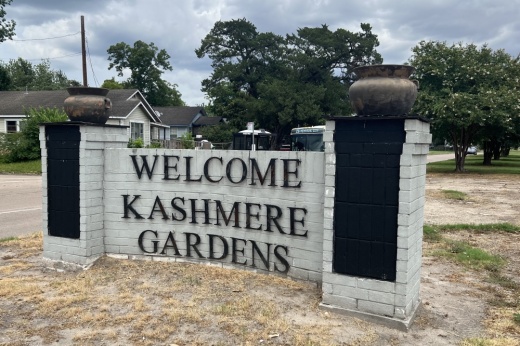As the fight for a cleaner environment continues in the Kashmere Gardens neighborhood, the Houston Health Department has notified the U.S. Environmental Protection Agency and the Texas Commission on Environmental Quality about the discovery of another chemical, dioxin, found in a surface sample taken.
According to a July 13 press release from the city of Houston, the sample was taken June 15 from soil at the intersection of Liberty Road and Lavender Street in the Fifth Ward neighborhood—near the former Union Pacific Corp. Houston Wood Preserving Works creosote treatment facility, which resided at 4910 Liberty Road, Houston.
Under the EPA, dioxins are a “persistent organic pollutant” that refers to a group of toxic chemical compounds that take a long time to break down in an environment. Oftentimes, dioxins can be linked to types of cancers, reproductive and developmental issues and damage to the immune system and can interfere with hormones, the release said.
"The finding of dioxin in the Fifth Ward and Kashmere Gardens area is noteworthy and underscores why we are working aggressively to protect families and their children,” Mayor Sylvester Turner said in the release.
Following the initial detection, the health department is now collecting more samples and laboratory testing. According to the release, the health department is working closely with the EPA, the Texas Department of State Health Services and the Texas Commission on Environmental Quality, and it plans to create a community plan to inform citizens.
In the past, Union Pacific has been accused of having a connection to “longstanding” contamination in the neighborhood. As previously reported by Community Impact Newspaper, on July 5, Turner and Harris County Attorney Christian Menefee announced their intentions to sue Union Pacific in relation to the Resource Conservation Recovery Act, which gives power to control hazardous waste to the EPA.
“These findings support what residents of Kashmere Gardens have been telling us about their exposure to toxic chemicals,” Menefee said. “This is inexcusable. ... We cannot wait to take action to protect the people living in this community.”
According to a March 20, 2020, "Assessment of the Occurrence of Cancer" report from the Texas Department of State Health Services, the area surrounding the Union Pacific rail yard had elevated levels of cancer for both adults and children when compared to the expected base cancer rate for the state. Turner said in the release that the cancer rate for acute lymphoblastic leukemia was “nearly five times the expected rate.”
However, according to the DSHS, the analysis does not point to what is causing the cancer, citing other factors such as smoking and diet that could be contributing to the elevated number.
In an email to Community Impact Newspaper, Union Pacific officials said they collected samples for dioxin on their property in 2009, and results from the tests were below “residential action levels for surface soils.” In the past, Union Pacific said the company’s focus has been and always will be to continue to protect the environment and the health and safety of the public.
“We look forward to working with the city of Houston and other stakeholders to review the city's test results,” Union Pacific officials said.





